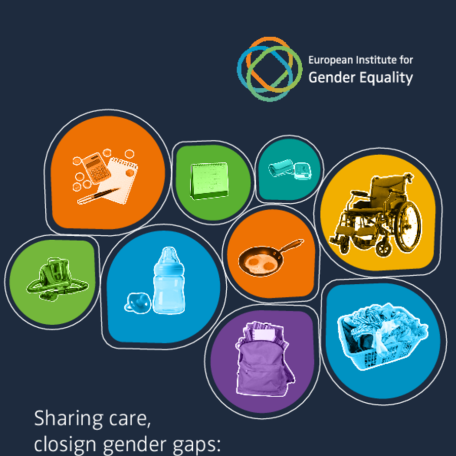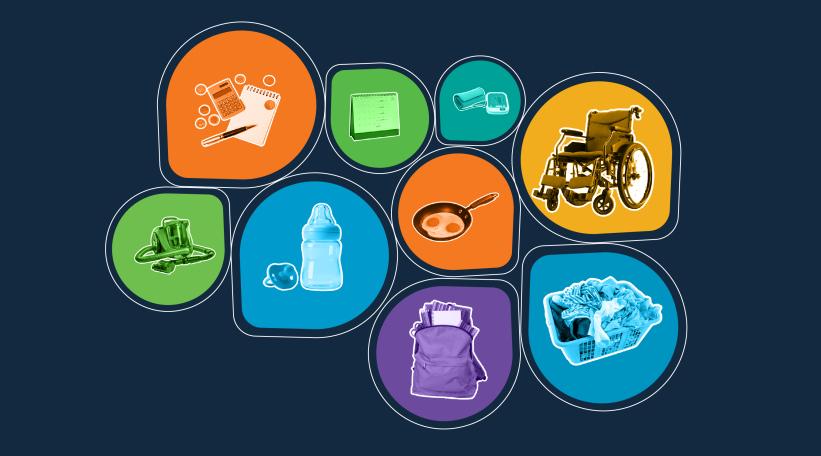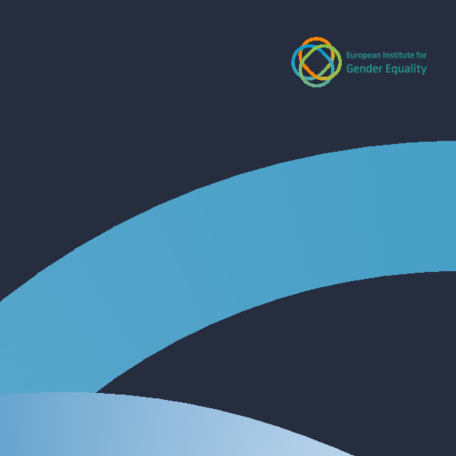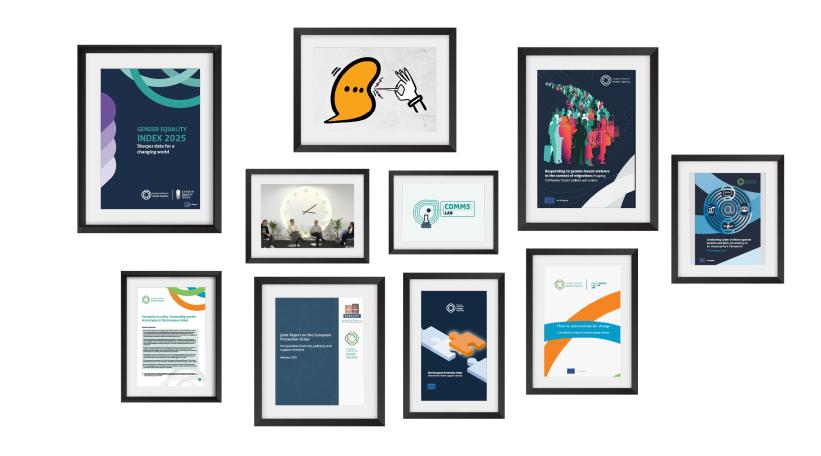Setting the scene during the Gender Equality Index 2023 conference on 24 October 2023 at the European Parliament, moderator Federica Di Sario discusses with EIGE's Director Carlien Scheele, on where the European Green Deal and Gender Equality meet and why it matters now more than ever.
Video
Transcript
Frederica Di Sario: “You have been at the lead of EIGE for the past 3 years; all your career has been about advising EU institutions on how to better capture and how to better make sure that the gender perspective is incorporated across several policies. My question would be, why do you think it’s so important that we move towards a green and gender equality Europe?”
Carlien Scheele: “Thank you, Frederica, for this question. To be honest this is a topic that is very dear to my heart. When we speak about climate change, what I see is that for many people it’s overwhelming. There’s many things happening that we simply do not understand; that alone we would understand the connection between gender equality and the green deal and climate change.
And maybe I can share with you a personal experience that I had years ago, when I had never thought about any connections between gender equality and climate change. This was when I was back in 2006, in New York, for negotiations on the Commission on the Status of Women. We were talking about participation of women in society, and the barriers for them, and as the EU, we negotiate as the EU together, when suddenly one of the developing countries that was also in the room spoke about how in their country, due to the lack of rain and the very dry seasons, people usually went to the water wells to get water, they had to walk longer distances to get water. And then that man said ‘Listen, it’s mostly girls and women who leave on a daily basis to get that water, and they’re easily victims of sexual assault’.
So for me, that was the first time to really understand that there is a link between climate change and the daily life of people, of women and men, boys and girls; and also the effects of climate change on gender equality, because it’s horrible if you think that you need water, if you go and get it, you might be sexually assaulted. You’re not safe. So, this was really for me an eye opener, and I hope that today when we share the results of the Index, and also in the years to come, we will provide those eye openers to everyone who’s working on the issue of climate change and the Green Deal, and anyone beyond – it’s important that we understand this.
My second remark is, if we speak about a socially fair transition, for me and for EIGE, it means we should leave no one behind. One important topic that comes to the table very often now is energy poverty, lack of energy but also energy poverty. Many of the measures that governments are taking to combat climate change cost money. At the same time, we know that people in poverty in the European Union are often women. There’s again a link.
And my third remark in this sense is that I would like to speak about responsibility. It is important that more women participate: in the renewable energy sector, that we have a more equal share of recycling responsibilities at home, more gender-balanced environmental decision making and safer sustainable public transports. And now with the data today, I hope that we help to show, to give the evidence that there is still much room for improvement, because women are not visible. And maybe to end, my response Frederica, I think we all have a responsibility in combating climate change. I hope also in today’s discussions it will become clear how on an individual level, as citizens, we can add to combatting climate change.”
FD: “We are here because of the release of the Gender Equality Index, which I’m sure involved a lot of data crunching, so my question is about the role of data. How important do you think it is to have the right data to drive evidence-based policymaking to tackle gender inequalities?”
CS: “Well, action stems from knowledge. I have been a policy adviser, I have been working on policies on gender equality in my country back home, and you simply cannot do this without data and evidence. I take it that every government wants to develop the best policies for their citizens, and if that’s your goal, then you need to understand what the needs of women and men are, in all their diversity, in your Member State.
As the Director of the policy centre on gender equality in the European Union, I can only stress how important data and evidence are. And going back to the Green Deal, as I said before, for many it’s a very a complicated issue such climate change and the green deal; and also, to be honest, if I may say so, when I look at the text of the Green Deal, it’s very difficult to find references to gender equality.
So, the more important it is that we, as an Institute, make visible what are the needs of men and women in society. And in that area we focus now mostly on energy and transport, so what we will do: we will provide the relevant evidence and data for Member States and governments, but also for the European Union, to really reflect on the actual needs and situations, the status quo, of women and men in all their diversity in the EU, because only if you use that data evidence, you’re able to respond adequately to your policies.”
FD: “You mentioned before the fact that everybody can do something about gender equality, it doesn’t really need to be policy makers – of course it’s very recommended that policy makers become more sensitive to the issue – but it’s not just about them, it’s also businesses, academia, it’s also individuals like you and me. So, can you tell us, trying to be very concrete, what will be your 3 steps forward to help you go towards a more gender equal Europe?”
CS: “Before I move to the 3 steps forward that EIGE wants you to share today, maybe I first explain why we launched that campaign “3 Steps Forward” last year. I realized, in many of my interventions, and also in the past years when I spoke about the results of the gender equality index, I often said ‘Listen, we take one step forward and two steps back’ – and not only is that of course a very, let’s say, depressing message, but I also realised that with all the knowledge that not only EIGE has, but many of us have, if we join forces, we can really make a change. So that’s why, as an Institute, we decided to invite everyone to formulate their 3 steps forward.
So, policy makers, governments, ministers, everyone who wants to participate in our campaign, please formulate your 3 steps forward. For us it’s hope-based communication because we really think that on the base of data information, and with our knowledge and capacities we can really make a change, but we also should join forces in that. So, we launched that campaign last year, we invited many of our allies, to formulate their 3 steps forward, they do this on social media, and it gives new spirit of hope, of really realizing we can make a change. I f it comes down to EIGE, what I can tell you is that our 3 steps forward are, and will continue to be:
- We will continue to provide evidence – that’s the first step. Data and information that are extremely relevant.
- We will build coalitions and engage in conversations, as we do today, and we will specifically also focus on the green deal and gender equality in the coming years.
- We will share our know-how in the forms of concrete tools that anyone can use to implement gender equality in their portfolio, and specifically in the Green Deal policies; and we will also share good practices.
So that’s the 3 steps forward that I would like to put on the table today and you can count on EIGE for that.”
Further reading
How did your country do? Discover the Gender Equality Index scores
Read the Gender Equality Index 2023 report
EU gender equality reaches new milestone: is progress accelerating?
Read more about EIGE’s focus on taking #3StepsForward for a green and gender-equal Europe here




